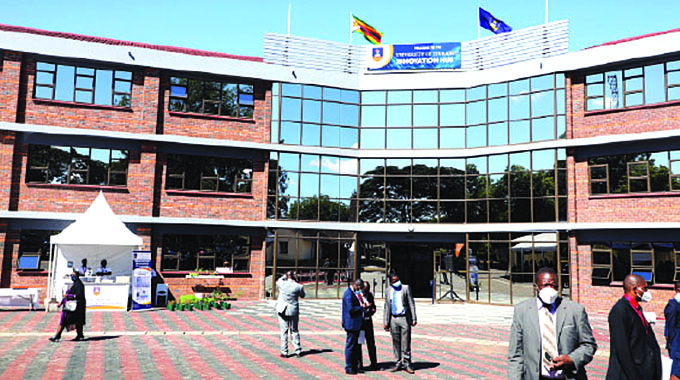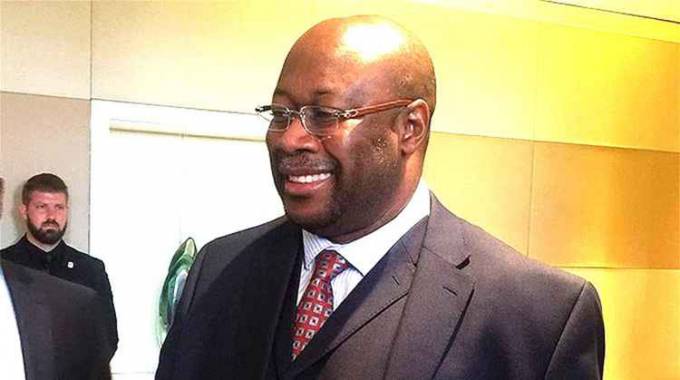Zim makes strides towards decolonisation

Gibson Nyikadzino Correspondent
In a few days, Zimbabwe will be celebrating 42 years of political independence. From that journey, almost 22 years have been an arduous march to economic emancipation.
Both roads for political and economic independence were thorny and infested with obstacles.
As usual, political and economic independence are major parts of a revolution.
Political independence in Zimbabwe was a product of fighting a violent colonial system that dehumanised, oppressed and murdered blacks.
The economic system that was entrenched through violence also needed to be changed for Zimbabwe’s total emancipation.
Entrenching the political and economic subjugation of blacks was achieved through violence by the British who colonised Zimbabwe.
In modern day Zimbabwe, when talk of independence comes up, it is always accompanied by another term — decolonisation!
For Zimbabwe, there is an interlink between independence, both political and economic, with decolonisation.
The discourse of decolonisation has now become very popular and it is trickling down to ordinary people. For Zimbabweans to understand decolonisation, they need to appreciate that it is a historical struggle for national sovereignty against colonialism.
Decolonial thinking, whether political, economic or social, strives to delink itself from the imposed dichotomies articulated and later imposed on post-colonial Africa by the West.
It is also important to note that the process of decolonisation is neither static nor fixed, but ongoing and evolving. It is not just anti-colonialism, though at times it can also become a violent process.
Eminent political philosopher, Frantz Fanon, succinctly expresses how decolonisation is as violent as the process of colonisation.
He said what makes decolonisation a violent process is its quest to separate the mind of the formerly colonised from that of the coloniser.
Besides political and economic colonisation, the white settlers in Zimbabwe also took away some of the value systems of Zimbabweans, thus as a nation we should start looking at decolonisation as all conditions of our existence that are free from coloniality.
Epistemic reconstruction
There is no revolution without pain! As Che Guevara said: “A revolution is not an apple that falls when ripe. You have to make it fall.”
In 2001, from the colonial violence that Zimbabweans endured, new men and women were created whose keenness on decolonisation entailed an “ongoing undoing of colonisation” and engaging in epistemic reconstruction.
It is essential to appreciate that Zimbabwe is where it is now because of decolonisation that there has been a replacement of one ‘species of men’ with another because there is now a change to the entire population which appreciates that independence is both political and economic.
New forms of knowledge have been created by Zimbabweans on what they can do to fight the ghosts of colonisation.
The land reform is a key recommendation of solutions and guidelines that any society needs in order to achieve a decolonised society.
Theorising alone is not enough, but changing perceptions on what has to be done for the world to change is the new knowledge Zimbabwe produced for post-colonial Africa.
The epistemological reconstruction in Zimbabwe has created a new breed of citizens that have conceptually put alternatives for the country’s renaissance and how the country can help others too.
Defying the caricature
No continent has had remarkable political enlightenment than Africa.
Between 1957 and 1960, only a handful countries had been independent. The decade from 1960 to 1975 saw over 25 African countries fighting for political freedom from the clutches of colonialism.
Zimbabwe and Africa’s erstwhile colonisers have over the years pushed the continent into narratives that blacks are a failed race.
Despite such negativity, today the rising innovative youth population in Zimbabwe and beyond has reconfigured how the continent’s young generation is willing to get local solutions to Zimbabwean challenges by embracing entrepreneurial skills vital for the continent’s development.
The selfless sacrifices Zimbabwe’s founding fathers invested for the independence of their people should be repaid by leaders that are keeping the founding script that was written in the 20th century.
As such, for Zimbabwe, life must be understood backwards, but it must be lived forwards.
It is not generosity
There is an American platform for youth training initiatives where the US government invites “young African leaders” for leadership training. The Young African Leaders Initiative (YALI) platform is not only a platform of generosity.
A friend who attended that platform sometime in 2017 told this writer that he suspected the training they received in the US, back then, was conducted by members of the Central Intelligence Agency (CIA) and other security branches of the US’ security establishment.
The programmes are tailored for Africans to believe that the Americans are “raising critical consciousness” that involves a deliberate effort to deconstruct and reconstruct the sense being Zimbabwean.
There is a maxim in international relations that there are no permanent friends or permanent enemies, just permanent interests. The interests of the West in Zimbabwe’s youth is not an act of generosity but a subtle way to inculcate alien values that destroy state foundations.
Initiatives like YALI have also led to an influx of non-governmental organisations (NGOs) that have led to the moral collapse of Africa.
The NGOs mainly created by YALI “graduates” are nothing, but appendages of Western values and policies that mobilise against national interests.
It is not an act of generosity for the young population to be invited to Western capitals, but such is an outcome of long-distance social engineering.
These invitations are not done to encourage “multicultural collaboration” or to “create awareness of contemporary African issues”, but to extract information that might be used to damage the interests of Zimbabwe.
The power of thought
As Zimbabwe moves towards decolonisation, one area of investment critical in sustaining the debate of knowledge generation is coming up with intellectual centres that generate ideas of decoloniality.
It is the power of thought! Thought creates, but thought also destroys.
Zimbabwe needs think-tanks that play a key role in emphasising how decoloniality and total independence can be won through ideas.
Ideas are more powerful than guns!
Zimbabwe’s Museum of Africa’s Liberation is a key architectural centre of the country’s ability to churn strong and critical “ubuntu warriors”.
Ubuntu warriors who can strongly defend Zimbabwe’s values and advocate for the enhanced Africanisation and independence of Zimbabwe’s socio-political and economic way of life.
More needs to be done to have cultural exchanges and public diplomacy initiatives that help shape behaviour of both the citizens and external countries.
Zimbabweans, remember we are one!








Comments